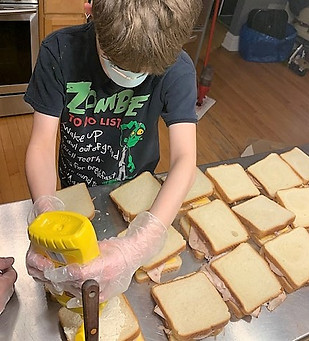
SOCIAL JUSTICE FOCUS
Equity, inclusion, and ensuring each person has access to resources they need to thrive within the community -- be it a school, town or nation.
Can education make the world a better place?
Curiosity about the world often uncovers situations of injustice and unfair treatment of others along with a concurrent desire to solve these inequities. We incorporate key concepts in our curriculum and group process that develop an understanding of social justice. Many of our student projects and institutional activities incorporate civic engagement and community work with social justice goals.
Our curriculum incorporates developmentally appropriate introductions to several key concepts as well as the vocabulary of social justice. For example, in Kindergarten our social justice curricular goals include "enjoying and being around people like and different from one's self," or "noticing, expressing concern, and seeking help when someone is not being treated fairly."
As students grow, they are ready to understand social issues with more complexity and act with more responsibility in seeking resolution to social problems. For example, a middle level goal is to "investigate the origins of institutional power, bias and privilege." Middle school students learning about housing discrimination might hold a seminar on reparations and invite a local elected official to join them in exploring their community's efforts to address past injustices that continue to impact peole's lives.
Our hope for each child is that they learn to acknowledge that oppression exists both historically and currently, and in response:
-
Understands the rights, responsibilities, and challenges of democratic processes within the school setting and actively participates in democratic decision-making.
-
Builds understanding of self and others through recognition of each person's unique identity and membership in multiple groups.
-
Respects differences among people and appreciates the value of our multicultural society and world.
-
Understands that identities, prior experiences, and structures within our society can shape and limit people's access to and participation in democratic process.
-
Critically questions rules, norms, assumptions, and stereotypes with respect and purpose.
-
Recognizes their own responsibility to stand up to exclusion, prejudice, and injustice and works towards a more just and inclusive society.


Contemporary Influences on Progressive Education
"To love all children, we must struggle together to create the schools we are taught to believe are impossible: Schools built on justice, love, joy, and anti-racism." Bettina Love
"The TCS social justice curriculum helped show me that everybody's voice should be heard, and it also made it easier to think from other people's perspectives."
TCS Graduate

.png)